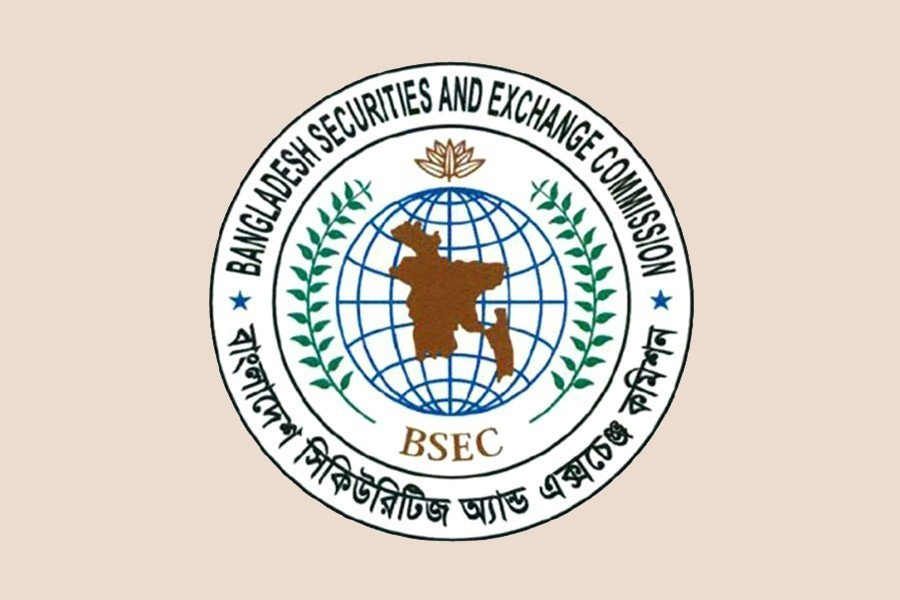Taskforce's final reports
IPO quota for retail investors 60pc, pooled funds may be redeemed earlier

Published :
Updated :

 The capital market taskforce on Monday submitted final reports - on initial public offering (IPO) and mutual funds -- to the securities regulator without major changes in the draft reports.
The capital market taskforce on Monday submitted final reports - on initial public offering (IPO) and mutual funds -- to the securities regulator without major changes in the draft reports.
The only notable change in the final report on IPO rules is the expansion of IPO quota to 60 per cent from the recommended 50 per cent for general investors in the draft report. The change was made based on public opinions that the taskforce had sought after releasing the draft reports.
Public opinions were almost in alignment with recommendations in the previous reports, said KAM Majedur Rahman, a taskforce member.
The final report on mutual funds, however, promises some sort of relief to unitholders who have been compelled to hold onto assets because of an imposed extension of tenures of some funds.
The advisory body said the funds having extended tenures will hold an EGM (extraordinary general meeting) within six months after the proposed amendments to the rules meant for MFs will come into effect. Any decision taken by the unitholders of a fund regarding the time extension or redemption will then have to be implemented within three months after the EGM.
So, possibilities have opened up for redemption of funds before the completion of their extended periods.
Again, the change was brought on in taking into account public views over the matter, said Ali Imam, a member of the taskforce's focus group.
The draft report on MFs suggested redemption of close-ended funds on completion of extended tenures.
Though taskforce reports over two key issues have been finalised it will take another three months before the enforcement of the suggestions made in them, according to officials of the Bangladesh Securities and Exchange Commission (BSEC). The new rules are subject to legal drafting and the commission's approval, they say.
Before framing the draft reports, the taskforce exchanged views with different stakeholders of the capital market. To know public perceptions about proposed reforms in the drafts, it sought opinions through the platform of the securities regulator before finalizing them.
The BSEC has a legal binding of seeking public opinions before finalising any proposed amendment to securities rules and regulations. Therefore, it will now conduct legal drafting of the reports submitted by the taskforce and seek public opinions.
After the commission's approval of the amendments, gazette notifications will be issued to bring them into effect.
The final report on MFs also includes a bar on investment in non-listed equities.
However, fund managers can be allowed to invest in bonds or preference shares issued by 'A' category listed companies, said the taskforce.
It said annual expenses of managing a pooled fund should be limited to 3 per cent of the fund's size. The expenses can be even less - 2 per cent -- when a fund is dedicated to fixed income and the money market.
MFs yearly management costs have thus far ranged between 4 per cent and 5 per cent of the funds' size.
On the dividend policy, the taskforce suggested distribution of at least 70 per cent of annual profits earned by close-ended funds irrespective of the nature of investment or underlying assets.
Presently, the growth funds are required to distribute at least 50 per cent of its annual income while a traditional fund has to distribute at least 70 per cent of yearly profits.
In the case of open-ended MFs, dividends should be equivalent to at least 30 per cent of annual profits or weighted average earnings per unit, whichever is lower. The taskforce has suggested relaxing the provision of dividend distribution by open-ended funds as unitholders of such funds have scope of realising investments at any time.
On public issue rules, the committee advised a primary approval of IPO from stock exchanges, and final approval from the securities regulator based on the bourses' recommendations.
It also spoke of a separate panel of IPO auditors with a credibility score of at least 60 out of 100 based on experience, clean image, and some other professional criteria.
The taskforce's most important suggestion on the public issue rules is tied to IPO valuation, especially under the book building method.
Presently, a company's valuation is determined based on 'fair value' under the Dutch-auction process.
The company's fundamentals are not reflected in the valuation process because of the regulatory practices and bad intentions of many bidders.
In its recommendation, the taskforce said an issuer company and issue manager would jointly set an indicative price based on their own valuation, allowing eligible investors (EIs) to bid above the benchmark.
he EIs will be allotted shares at the prices they bid for and the cut-off price will be the value at which the allocation for EIs would be exhausted.
mufazzal.fe@gmail.com


 For all latest news, follow The Financial Express Google News channel.
For all latest news, follow The Financial Express Google News channel.